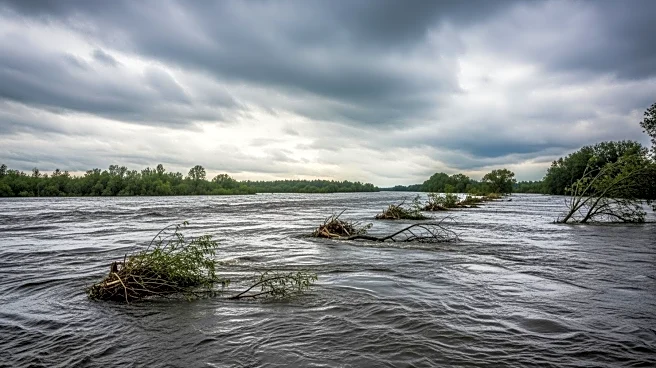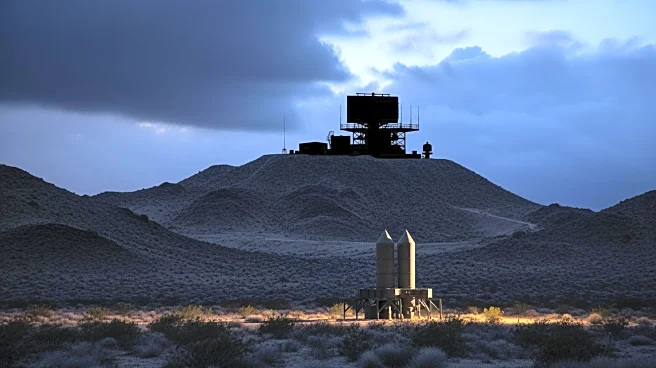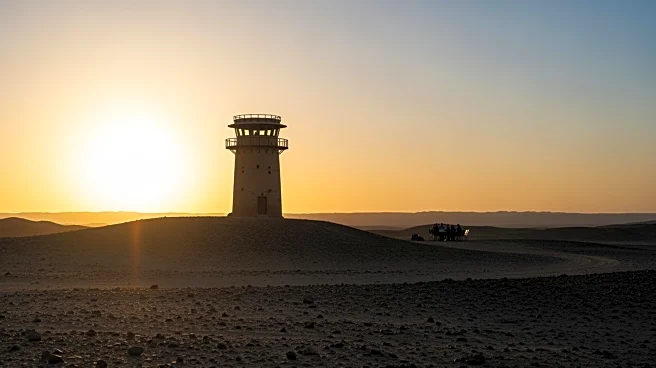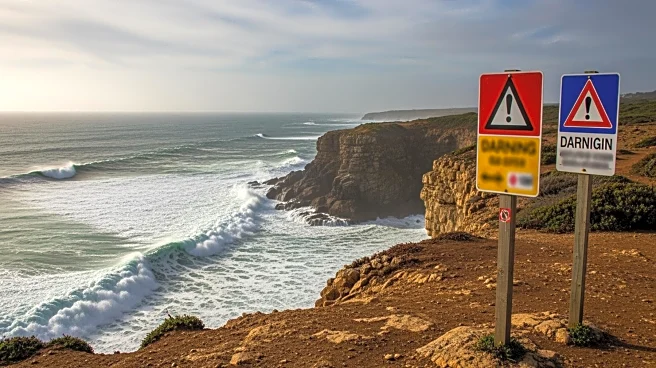Rapid Read • 8 min read
Libya, the fourth-largest country in Africa, is predominantly covered by the Libyan Desert, part of the Sahara. The country's arid climate results in no permanent rivers, with water flowing underground and occasionally surfacing in dry streambeds. To address water scarcity, Libya constructed the Great Man-Made River, a network of pipelines delivering fresh water to cities. Most of Libya's population resides along the Mediterranean coast, where the climate is milder. The country's geographical features and environmental challenges significantly impact its development and resource management.
AD
Libya's geographical and environmental conditions play a crucial role in shaping its economic and social development. The scarcity of water resources necessitates innovative solutions like the Great Man-Made River, which is vital for sustaining urban populations. The country's reliance on underground water sources highlights the importance of sustainable resource management. Libya's environmental challenges, including desertification and limited freshwater availability, affect agriculture, industry, and public health. Addressing these issues is essential for Libya's long-term development and stability.
Libya's future development depends on effectively managing its environmental challenges and optimizing resource use. Continued investment in infrastructure projects like the Great Man-Made River is crucial for ensuring water security. The government must prioritize sustainable practices to combat desertification and preserve natural resources. International collaboration and support can aid Libya in addressing environmental issues and enhancing resilience. The success of these efforts will impact Libya's ability to achieve economic growth and improve living conditions for its population.
Libya's environmental challenges reflect broader issues related to climate change and resource management. The country's experience underscores the importance of sustainable development practices and the need for international cooperation. Libya's reliance on innovative solutions like the Great Man-Made River highlights the potential for technological advancements in addressing environmental issues. The situation serves as a reminder of the complexities involved in balancing development with environmental preservation and the importance of proactive measures to ensure long-term sustainability.
AD
More Stories You Might Enjoy











